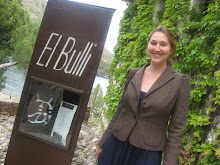In most of my own personal experiences, both having an abundance and variety of food and the act of eating have encouraged sociability: grocery shopping with my mother, romantic dinner dates, birthday celebrations with friends, and family holiday meals. Yet a specific instance comes to mind in which restriction of food encouraged sociability. When sociability relates to food, I tend to think of the act of eating together, enjoying food together, but this case is an exception.
On a flight from New York to Milan, I was seated next to an Orthodox Jewish couple, on their way to Italy to attend a wedding. The wife was seated to my immediate left, her husband in the seat to her left. At mealtime, the couple was served early because they had requested a kosher meal. The wife began to talk to me about keeping kosher. Talking about what she could not and would not eat was an expression of sociability. The topic of food and eating is rarely taboo, and can easily be broached. For example, “How was your meal?” is not an uncommon question to ask a stranger. In this case, my previous knowledge of the religious practices of the Orthodox Jewish population had always been secondhand. I had always assumed that talking to someone of another religion in such great detail about kosher law was not acceptable.
She did not see her diet as a hassle or as a restriction, but more as a way or preserving her culture and integrity. I had always interpreted self-imposed religious regulations as restrictions or as sacrifices, the root of some of the practices in Catholicism, the religion of my childhood. To a degree I relate to adjusting diet for the sake of religion, but only on occasion and not necessarily on a daily basis as these groups of people do. Yet for this couple and their family, religion is also a daily way of life, providing a social circle that purposely isolates the group, “keeping to ourselves” as she put it, as a way to protect the family from negative outside influences.
The airline meal was not properly kosher, the woman explained to me, yet wanted me to have it. She was persistent and insisted that it would be very good and that I should at least try it, so I obliged. It’s interesting how she differentiated between good, as in tasty, and good, as in something she could allow herself to consume. She also offered me some of the food she had packed herself, but I graciously declined only because they might have needed it later in case of delays or missed connections.
In this case the restrictions do not lead to loss of identity or sociability among the group because the regulations are self-imposed, and are not seen as detrimental. Food is very important to this family, and is much more than simply nourishment. It is often on their minds because of the advance planning required. For example, the couple’s daughter had baked homemade cookies that they would be able to eat in case the in-flight meals were not acceptable.
Had there been no meal service on this flight, I may not have talked with a woman that I initially imagined would have little interest in socializing with me. Food sociability is encouraged by countless scenarios, even the unexpected.
Friday, August 1, 2008
Subscribe to:
Post Comments (Atom)

No comments:
Post a Comment